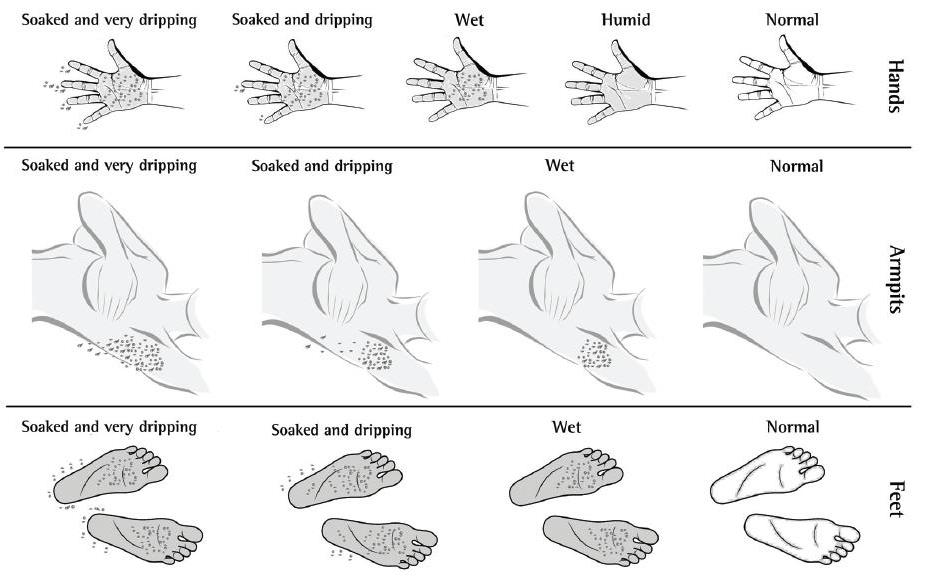Hyperhidrosis (excessive sweating) treatments for men and women: The Silent Handicap
EXCESSIVE SWEATING
Unless you’re actively kicking up a sweat at the gym or taking part in a marathon, excessive sweating can make you feel uncomfortable and out of place.
What is hyperhidrosis?
Termed the ‘Silent Handicap’ by Hyperhidrosis specialist, Dr Carl Swartling (2011), Hyperhidrosis (excessive sweating) is a common condition that isn’t often discussed in social circles, with men and women often feeling too proud or embarrassed to consult their GPs. Those affected can become very self-conscious and may start avoiding certain colours and types of clothing, usually opting for white or black items, as they make transpiration less noticeable. Many also often think that there aren’t any solutions to improve upon it.
Excessive sweating can interfere with social, romantic and professional encounters for both genders and in certain severe cases, it can interfere with practical activities – such as holding a pen – if the amount of sweat prevents you from holding objects.
The signs and symptoms of Hyperhidrosis
If you feel that the amount of sweat you’re producing interferes with your everyday life and is making you become self-conscious and/or socially withdrawn, then you may be suffering from Hyperhidrosis. The condition is divided into two strands – primary and secondary.
The latter is rare and is usually caused by an underlying condition. Although it can manifest in any area, it may only affect one side of the body, or all of it, and is sometimes symptomatic of a neurological cause.

For most, Primary Hyperhidrosis is the right cause of concern, with usually one area being symmetrically affected. The underarms, palms, feet and face tend to be most affected. The cause of Hyperhidrosis is currently unknown, but researchers claim that a genetic link might be at play.
What research has definitely shown is that the condition isn’t a direct threat to your health – though it may lead to feelings of depression and anxiety, which in turn can worsen the condition.
Living with Hyperhidrosis
Hyperhidrosis is a long-term condition with no cure, but there are ways to manage it and adapt to it effectively. You can start by trying to alter your lifestyle and avoiding spicy food, caffeinated or hot drinks, and alcohol, as they’re known to induce sweating. It’s helpful to note what triggers your episodes and reduce your exposure to them, and other stressful situations.
There are topical lotions and oral medication that can somewhat ease the condition, with some even relying on the use of electronic treatments, acupuncture and other alternative medicines to try and manage their sweating.
Treating Hyperhidrosis
In 2004, the FDA approved the use of Botulinum Toxin type A (commonly used for Wrinkle Relaxing Injections) for the treatment of excessive sweating. The substance works by temporarily blocking the nerves that encourage your sweat glands to become overactive.
The treatment is delivered by injecting small amounts of the toxin into to affected area, but whether it under the arms or the soles of the feet, the application of this treatment has to be exact, so it shouldn’t be performed by anyone who isn’t a medical practitioner.
The Private Clinic
Having over 40 years of experience in minimally invasive treatments, we know how important it is to have experienced and knowledgeable Nurse Prescribers and Aesthetic Doctors delivering our medical treatments. Members of our team are experts in their field, who place patient safety and satisfaction above all other considerations.
Hyperhidrosis treatment is available at our Manchester, Northampton and London Harley Street clinics.





